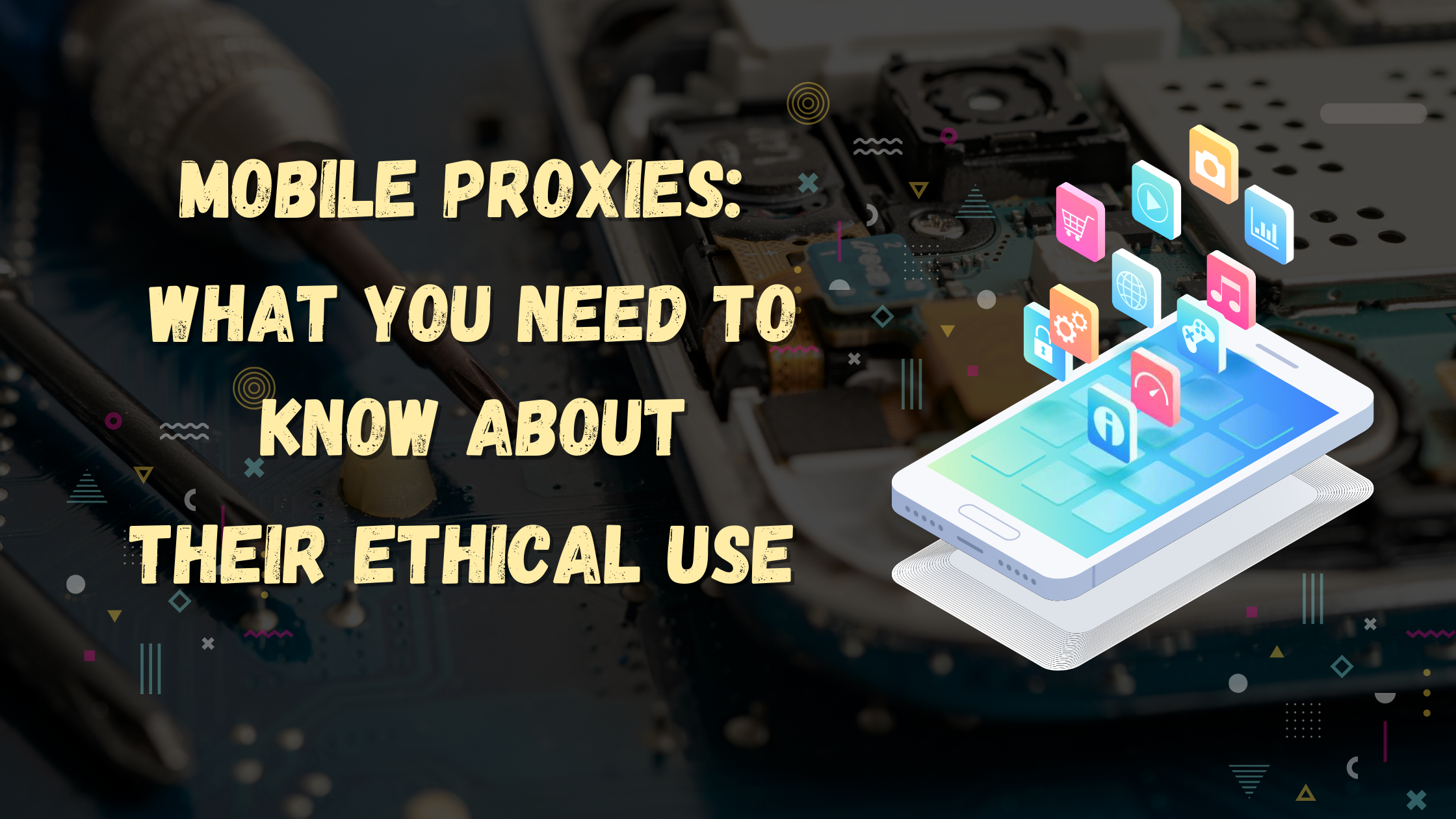Mobile Proxies: What You Need to Know About Their Ethical Use
In an era where online privacy and accessibility are paramount, mobile proxies have emerged as a powerful tool. However, like all technologies, their usage brings with it ethical considerations. This blog aims to explain what mobile proxies are, their applications, and how they can be used responsibly and ethically.
What Are Mobile Proxies?
A mobile proxy is an intermediary server that routes internet traffic through a mobile device's connection. These proxies use IP addresses provided by mobile carriers, making them appear as though the user is accessing the internet from a mobile device. This capability makes mobile proxies highly effective for tasks that require genuine, dynamic IP addresses.
How Mobile Proxies Work
Mobile proxies operate by leveraging a pool of IP addresses assigned to mobile devices. When a user sends a request through a mobile proxy, it is routed through one of these IPs, masking the user’s actual location and device information. This process enhances anonymity and circumvents geographical restrictions.
Common Applications of Mobile Proxies
1. Web Scraping
Mobile proxies are widely used for web scraping to collect publicly available data without being blocked. Their rotating IPs and high trust scores allow users to bypass anti-scraping measures effectively.
2. Ad Verification
Businesses use mobile proxies to ensure their advertisements are displayed correctly across different regions and devices. This helps detect and prevent ad fraud.
3. Market Research
Mobile proxies enable companies to analyze competitors’ pricing, product availability, and customer feedback in different regions without revealing their identity.
4. Social Media Management
Marketers leverage mobile proxies to manage multiple social media accounts, schedule posts, and engage with users while avoiding account bans.
The Ethical Landscape of Mobile Proxy Usage
While mobile proxies offer legitimate benefits, their misuse can raise ethical and legal concerns. Understanding the boundaries of ethical usage is crucial.
Do’s of Ethical Proxy Usage
- Respect Terms of Service: Ensure your activities comply with the terms and conditions of the platforms you interact with.
- Protect User Data: Avoid using proxies to harvest personal data without consent.
- Transparency: Inform stakeholders or users about proxy usage where applicable, especially in business settings.
Don’ts of Ethical Proxy Usage
- Avoid Malicious Activities: Do not use mobile proxies for hacking, fraud, or spamming.
- Circumventing Security Unjustly: Avoid bypassing security measures for unethical competitive advantages or illegal activities.
- Excessive Scraping: Excessive web scraping that disrupts a website’s operations or violates its terms of use is unethical.
Guidelines for Responsible Mobile Proxy Use
1. Choose Reputable Providers
Select proxy providers that prioritize transparency, legality, and quality. Research their reputation and compliance practices to ensure ethical operations.
2. Understand Local Laws
Proxy usage regulations vary by country. Familiarize yourself with local laws to avoid unintended violations.
3. Implement Rate Limiting
When scraping or accessing websites, use rate limiting to minimize server load and avoid detection.
4. Avoid Proxy Abuse
Ensure your use of proxies does not harm others’ online experiences, such as by participating in DDoS attacks or intrusive data collection.
Conclusion
Mobile proxies are a versatile tool that can enhance online privacy, facilitate market research, and improve ad verification efforts. However, their power comes with the responsibility to use them ethically and within the bounds of the law. By adhering to best practices and ethical guidelines, individuals and businesses can harness the benefits of mobile proxies while maintaining integrity in the digital ecosystem.


